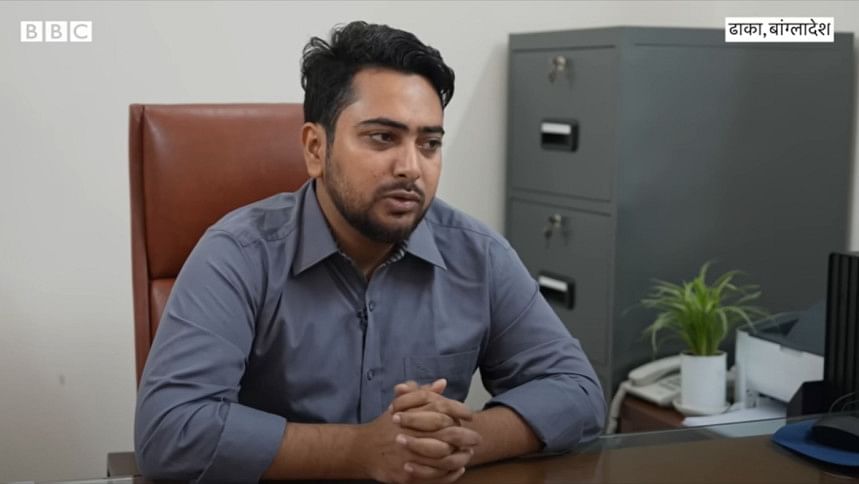India need not worry about Bangladesh's minorities, Nahid tells BBC Hindi

BBC Hindi aired an interview today with Nahid Islam, interim government's adviser for Information and Broadcasting, where he discussed minority protection, India-Bangladesh relations, and recent communal violence. Following is an excerpt.
Question: India frequently raises concerns about the safety of your minorities. What's your view on this?
Nahid Islam: The minorities in Bangladesh are our citizens, and it's our responsibility to ensure their safety. India doesn't need to worry about them. India should focus on the violence that took place last July-August. The question might be, what kind of support can India offer to Bangladesh in facing these challenges? This is where discussions should be focused. I would also like to mention that the Indian media has been spreading false information about our government, and India should address this. We want discussions based on facts and aimed at improving relations.
Question: You mentioned India's need to clarify its stance on what happened here in July-August. Could you elaborate?
Nahid Islam: We would like to know how India views the July-August violence committed by the Awami League. Some countries have shown support for the people of Bangladesh, but India has remained silent. Additionally, India has provided refuge to a person who is directly linked to these incidents.
Question: Are you saying India is overlooking the recent violence in Bangladesh?
Nahid Islam: If India genuinely empathises with those who lost loved ones, the people of Bangladesh will see that positively. I would like India's support in ensuring that legal action is taken against those responsible for these acts of violence.
Question: In August, India urged all parties to show restraint. Meanwhile, some minority groups have reported severe mistreatment over the past three months. We've visited several areas and spoken to victims who say they can't trust the authorities. Are you aware of this, and if so, what are your thoughts?
Nahid Islam: Yes, we are fully aware of what's happened and of the hardships people have endured. It's important to remember that without timely action, things could have been much worse. For example, during Durga Puja, there were warnings of potential violence. We deployed enough law enforcers, and the celebrations went peacefully. Our government has engaged with the minority communities and assured them of their safety.
Question: Some minority groups feel that, despite reassurances, enough action wasn't taken.
Nahid Islam: I would argue that no previous government has worked as closely with minority communities as we have over the past three months. Past governments have used these issues for political gains, eroding the trust of minority communities. We are trying to restore this trust. However, some issues require time to resolve.
Question: There are concerns that after the Awami League government's departure, extremist groups may gain strength, posing security risks for both Bangladesh and India.
Nahid Islam: The people of Bangladesh do not support extremist groups or violence. Bangladeshis want a democratic government. What you're saying reflects a narrative promoted by the Awami League, suggesting that without them, extremist groups would grow. The Awami League has ruled for many years, and India has supported this viewpoint. But the question is, why should Bangladesh's internal politics impact its relationship with India? If India truly built its relationship with the people of Bangladesh and not just with the Awami League, this wouldn't be an issue. For example, we don't question who is in power in India, whether it's the BJP or Congress. The same principle should apply here -- relations should not hinge on whether the Awami League is in power.
Question: The different projects undertaken between India and Bangladesh will benefit both countries and the people of Bangladesh or would it only benefit the Awami League? What's your perspective on this?
Nahid Islam: This shouldn't be seen from the Awami League's perspective. If both countries support each other, it's possible to accomplish good work for both. We haven't cut off relations with any country or stopped any projects. Everything is proceeding as before.
Question: It has been said that Bangladesh is reviewing its investments with India. Can you update us on this review? Do you think talks between the two countries could resume?
Nahid Islam: Yes, we are reviewing projects, but this isn't limited to India. We're evaluating projects with all countries, examining areas that may be vulnerable to corruption or areas that may not benefit Bangladesh.

 For all latest news, follow The Daily Star's Google News channel.
For all latest news, follow The Daily Star's Google News channel. 










Comments